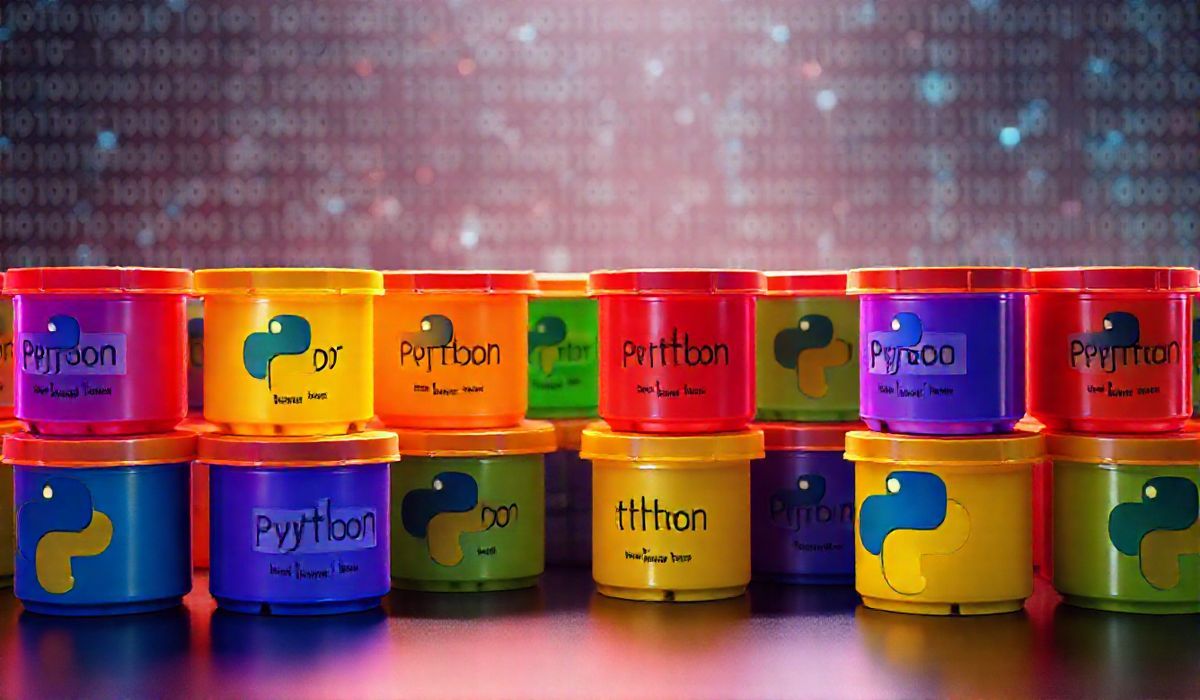Introduction to SortedContainers
The sortedcontainers module in Python provides a fast and efficient way to handle sorted collections. It is a powerful library that maintains order in your data structures, ensuring optimal performance during insertions, deletions, and lookups. In this blog post, we will explore various useful APIs provided by the sortedcontainers library and present some code snippets to help you get started.
Installation
To install sortedcontainers, simply use pip:
pip install sortedcontainers
Basic Usage
Let’s start with some basic usage of the sortedcontainers library:
from sortedcontainers import SortedList, SortedDict, SortedSet
# Creating a SortedList
sl = SortedList([5, 1, 3, 2, 4])
print(sl) # Output: SortedList([1, 2, 3, 4, 5])
# Creating a SortedDict
sd = SortedDict({'banana': 3, 'apple': 5, 'pear': 1})
print(sd) # Output: SortedDict({'apple': 5, 'banana': 3, 'pear': 1})
# Creating a SortedSet
ss = SortedSet('abracadabra')
print(ss) # Output: SortedSet(['a', 'b', 'c', 'd', 'r'])
API Examples
SortedList API
from sortedcontainers import SortedList # Init with iterable sl = SortedList([5, 1, 3, 2, 4]) # Add item sl.add(6) print(sl) # Output: SortedList([1, 2, 3, 4, 5, 6]) # Remove item sl.remove(3) print(sl) # Output: SortedList([1, 2, 4, 5, 6]) # Checking existence print(2 in sl) # Output: True # Access by index print(sl[2]) # Output: 4
SortedDict API
from sortedcontainers import SortedDict
sd = SortedDict()
# Setting items
sd['banana'] = 3
sd['apple'] = 5
sd['pear'] = 1
# Accessing items by key
print(sd['apple']) # Output: 5
# Iterating keys
for key in sd:
print(key, sd[key]) # Output: apple 5, banana 3, pear 1
# Deleting items
del sd['pear']
print(sd) # Output: SortedDict({'apple': 5, 'banana': 3})
SortedSet API
from sortedcontainers import SortedSet
ss = SortedSet('abracadabra')
# Adding items
ss.add('z')
print(ss) # Output: SortedSet(['a', 'b', 'c', 'd', 'r', 'z'])
# Removing items
ss.remove('a')
print(ss) # Output: SortedSet(['b', 'c', 'd', 'r', 'z'])
# Checking existence
print('c' in ss) # Output: True
Example Application: Task Scheduler
Let’s create a simple task scheduler using SortedList:
from sortedcontainers import SortedList
import time
class TaskScheduler:
def __init__(self):
self.tasks = SortedList()
def add_task(self, task, priority):
self.tasks.add((priority, task))
def run(self):
while self.tasks:
priority, task = self.tasks.pop(0)
task()
time.sleep(priority) # Simulate task duration
def task1():
print("Running Task 1")
def task2():
print("Running Task 2")
scheduler = TaskScheduler()
scheduler.add_task(task1, 2)
scheduler.add_task(task2, 1)
scheduler.run()
In this example, we use SortedList to maintain a list of tasks sorted by their priority. The TaskScheduler class can add tasks with priorities and run them in the correct order.
With sortedcontainers, managing sorted data becomes effortless, whether you need sorted lists, dictionaries, or sets. Its efficient implementation ensures that your data operations remain fast and reliable.
Hash: 0fd0bc884fcfdb33b522d5abe5edcb49ae9441b708d46f9e3229c7b5a02e1bf1




